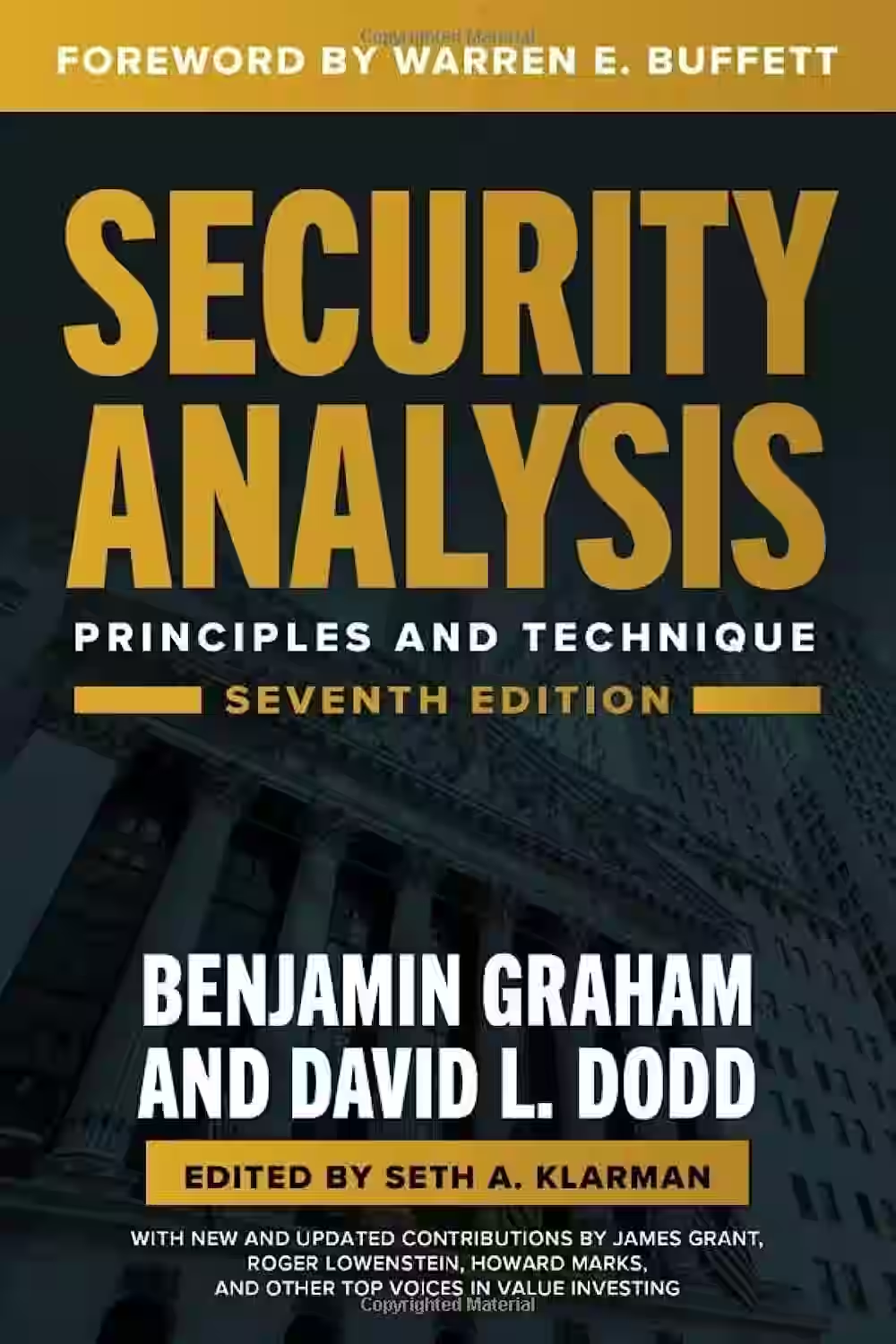
In 'Security Analysis,' Benjamin Graham revolutionized the world of investment by introducing the concept of value investing, emphasizing the importance of thorough research and analysis before making investment decisions. Graham's timeless wisdom on intrinsic value, margin of safety, and market fluctuations continues to influence investors worldwide. The book provides a comprehensive guide to understanding financial statements, evaluating stocks, and building a successful investment strategy. With real-life examples and practical advice, 'Security Analysis' equips readers with the tools to navigate the complexities of the stock market and make informed choices. A must-read for both novice and seasoned investors.
About Benjamin Graham
Benjamin Graham (1894–1976) was a British-born American economist, investor, and professor widely regarded as the father of value investing. He taught at Columbia Business School, where he mentored Warren Buffett and other legendary investors. Graham’s most influential works include Security Analysis (co-authored with David Dodd) and The Intelligent Investor, both of which emphasize long-term investing, intrinsic value, and disciplined financial analysis. His principles of margin of safety and rational investing have become cornerstones of modern investment strategy. Graham’s work bridges academic theory and practical application, helping countless investors make informed decisions based on sound financial fundamentals.
About David Dodd
David Dodd was an American economist, professor, and author best known for co-authoring Security Analysis with Benjamin Graham in 1934. As a professor at Columbia Business School, Dodd helped pioneer the discipline of value investing, emphasizing fundamental analysis and intrinsic value. His work with Graham laid the foundation for generations of investors, including Warren Buffett, who considers their book a cornerstone of investment strategy. Dodd’s academic rigor and practical insights significantly influenced modern financial theory and long-term investing.
Other Books by Benjamin Graham, David Dodd
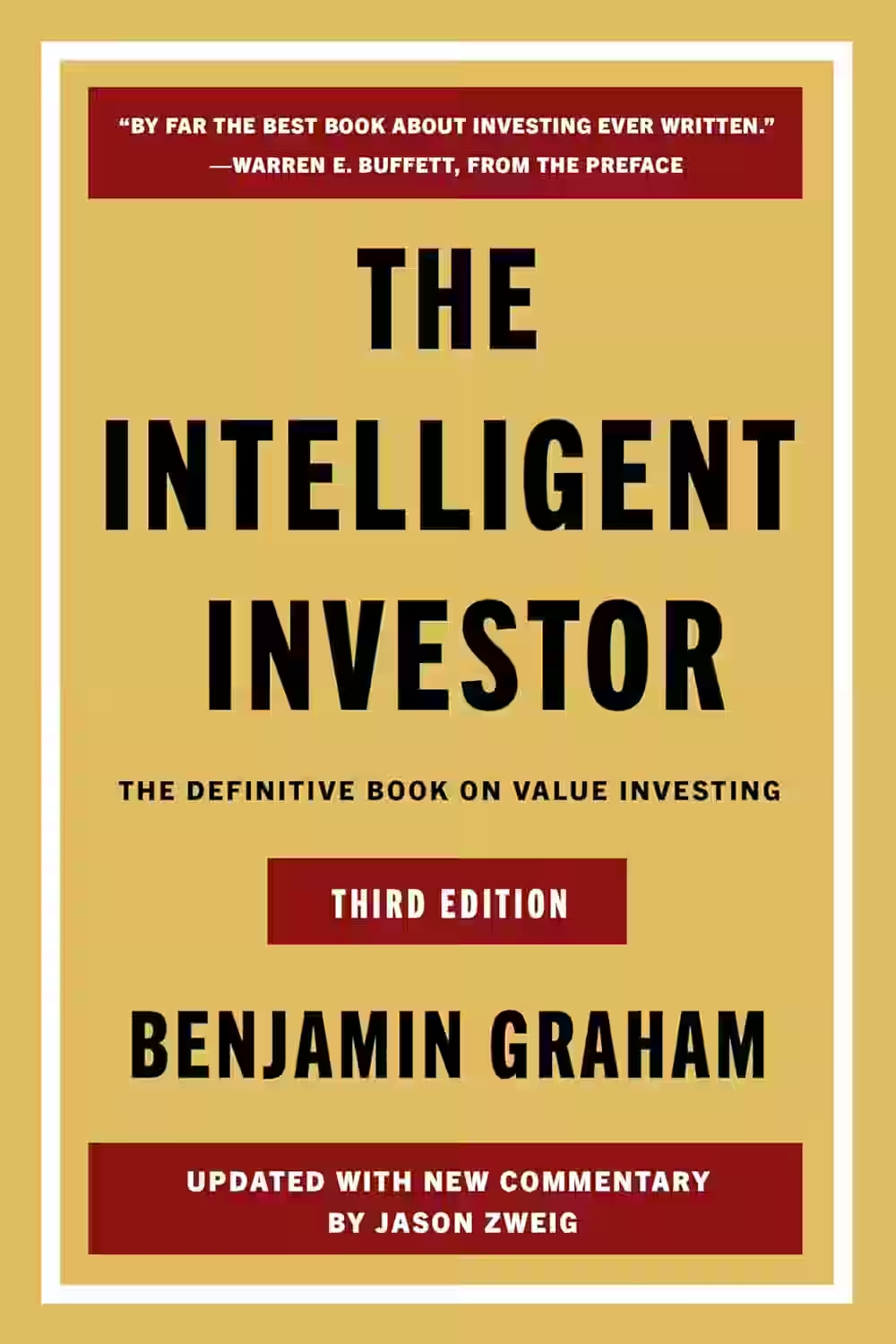
The Intelligent Investor
First published in 1949, The Intelligent Investor by Benjamin Graham is a foundational text on value investing and long-term financial strategy. Graham, known as the father of value investing, teaches readers how to analyze stocks with a focus on intrinsic value, margin of safety, and disciplined decision-making. The book distinguishes between “investing” and “speculating,” urging caution, patience, and rational thinking. With commentary by Jason Zweig in modern editions, the book remains a timeless guide for both novice and experienced investors. Its core message—that emotional control and sound principles are key to investment success—has influenced generations, including Warren Buffett.
Similar Books

Cashing in on the American Dream
In 'Cashing in on the American Dream' by Paul Terhorst, the author challenges the conventional idea of working endlessly to retire comfortably in old age. Terhorst encourages readers to question the prevailing norms of the American Dream and instead opt for a simpler, more fulfilling life by retiring early. Through personal anecdotes and practical financial advice, Terhorst presents a roadmap for achieving financial independence and living life on one's own terms. The book delves into themes of frugality, minimalism, and mindful spending, emphasizing the importance of valuing experiences over material possessions. 'Cashing in on the American Dream' inspires readers to reassess their priorities and strive for a more meaningful existence.
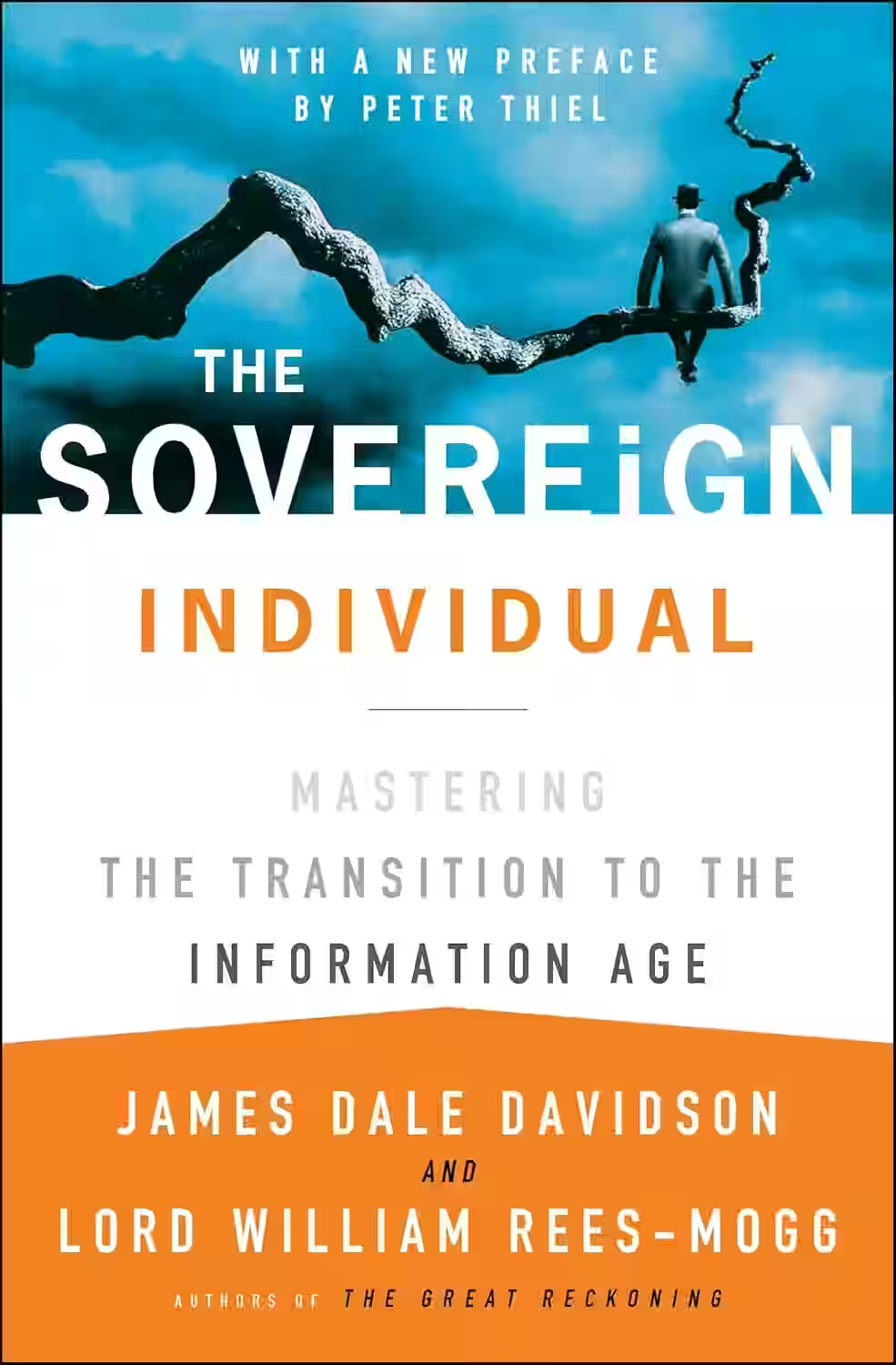
The Sovereign Individual
by James Dale Davidson, William Rees-Mogg
Published in 1997, The Sovereign Individual predicts the rise of the digital age and its impact on individual autonomy and state power. The authors argue that technological advancements, particularly the internet, will diminish the influence of governments and empower individuals to take control of their own lives. They foresee a future where traditional institutions are challenged, and personal sovereignty becomes paramount. This provocative work offers a foresightful analysis of the intersection between technology, economics, and personal freedom.
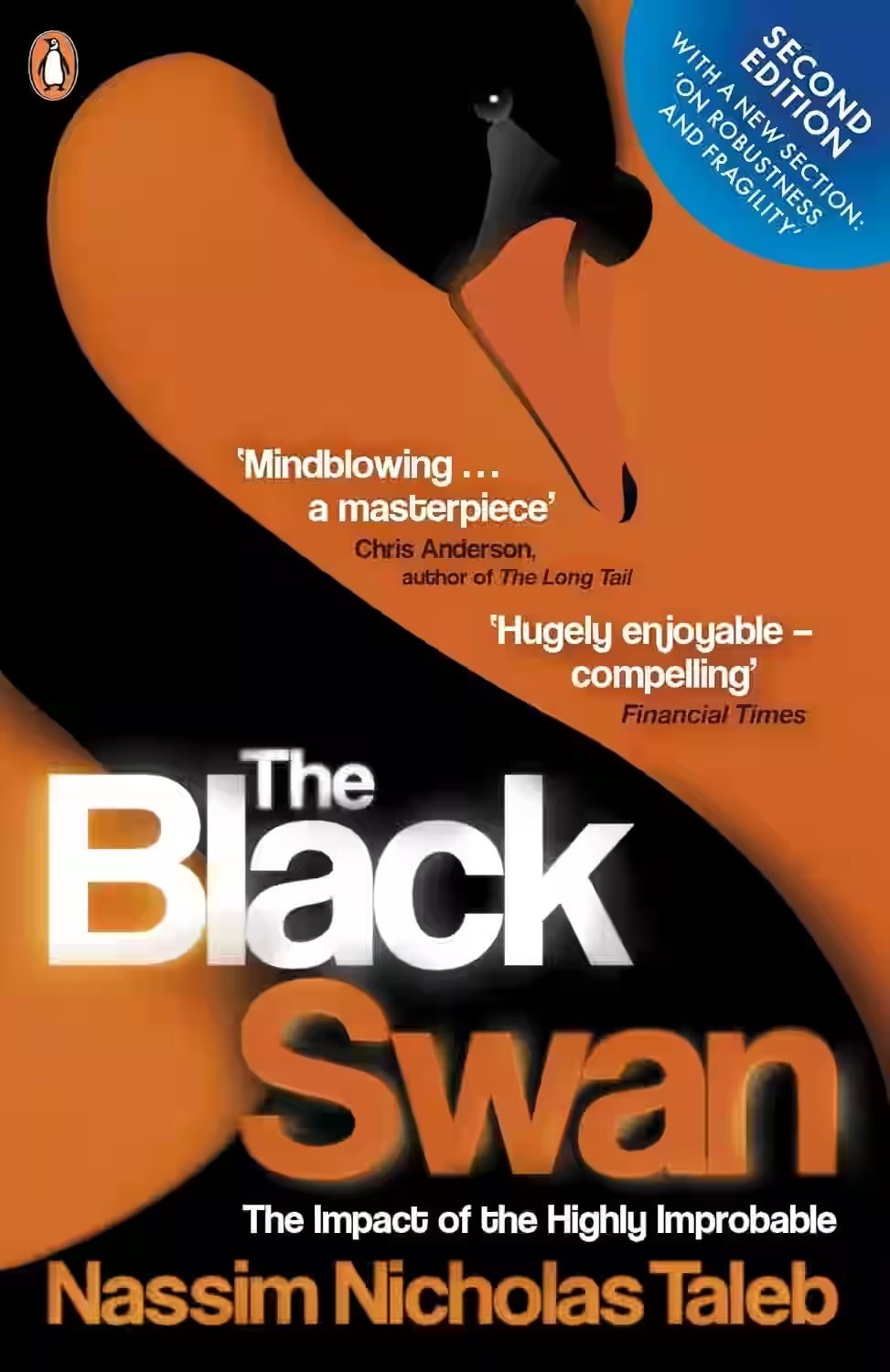
The Black Swan
Series: Incerto (#2)
The Black Swan explores the profound impact of rare, unpredictable events—what Taleb calls “Black Swans”—that lie outside normal expectations but have massive consequences. The book challenges traditional forecasting and risk models, arguing that humans consistently underestimate uncertainty. Taleb illustrates how randomness and surprise shape history, from financial markets to scientific breakthroughs, and advocates for antifragility—systems that benefit from disorder. Combining philosophy, probability theory, and anecdotal insight, The Black Swan is a provocative critique of modern thinking and a call to embrace humility in the face of complexity. It’s a transformative read for anyone making decisions in uncertain environments.
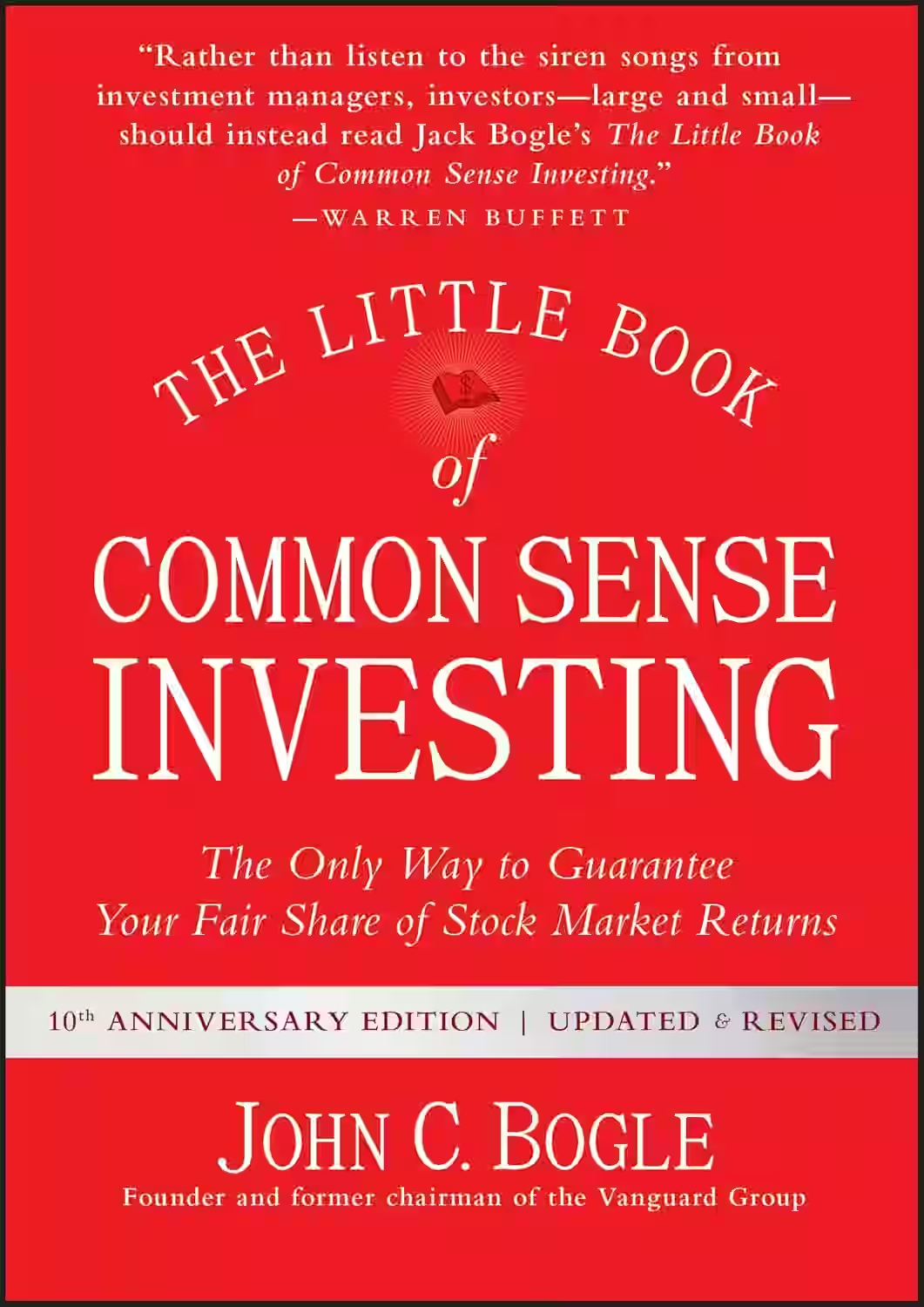
The Little Book of Common Sense Investing
In 'The Little Book of Common Sense Investing', John C. Bogle, the founder of Vanguard Group, delivers a compelling argument for passive index investing as a tried-and-true strategy for long-term financial success. Bogle breaks down complex financial concepts into simple, accessible advice for both seasoned investors and beginners. He highlights the pitfalls of high-cost, actively managed funds and advocates for a low-cost, buy-and-hold approach to investing. With a focus on minimizing fees and maximizing long-term returns, Bogle's book serves as a practical guide for investors looking to navigate the often tumultuous world of finance with prudence and common sense.